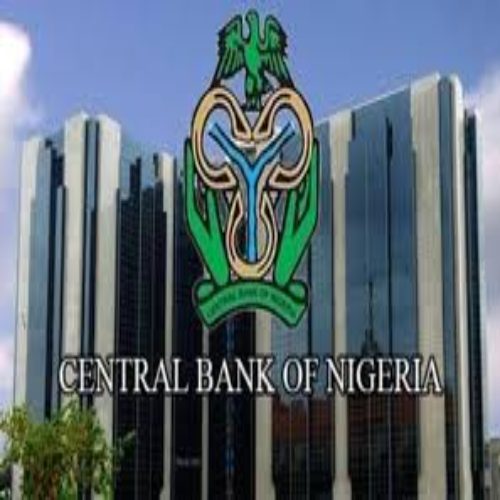
In a bold move to combat inflation and stabilize Nigeria’s economy, the Central Bank of Nigeria (CBN) has announced a transition to an inflation-targeting framework.
This shift aims to increase price stability, protect Nigerians’ purchasing power, and drive sustainable economic growth. The strategy aligns with global best practices, as several African central banks have already implemented similar frameworks. The CBN’s new approach is expected to boost aggregate demand, increase disposable income, and stimulate local production, ultimately strengthening economic resilience.
Inflation remains a significant challenge in Nigeria, impacting households and businesses nationwide. As part of its efforts to curb inflation, the CBN recently hosted the Monetary Policy Forum 2025, bringing together fiscal policymakers, legislators, private sector leaders, development partners, and economists to discuss strategies for managing inflation.
At the event, Olayemi Cardoso, Governor of the CBN, reaffirmed the apex bank’s commitment to a disciplined monetary policy approach. He highlighted the bank’s focus on ensuring price stability, transitioning to inflation targeting, and restoring Nigerians’ purchasing power amid economic pressures.
Cardoso emphasized the importance of fiscal and monetary coordination, noting that stabilizing inflation requires robust policies and collaboration between government agencies. He further revealed that Nigeria’s foreign reserves had risen to over $40 billion as of December 2024, reflecting relative stability in the foreign exchange (FX) market and a narrowing of exchange rate disparities.

Beyond controlling inflation, the CBN is reinforcing Nigeria’s banking sector stability. The introduction of new minimum capital requirements for banks, effective March 2026, aims to secure the durability of financial institutions and prepare the industry for a projected $1 trillion economy.
In another major policy move, the CBN launched the Nigeria Foreign Exchange Code, which establishes principles of integrity, fairness, transparency, and efficiency in the FX market. The initiative seeks to rebuild trust within the financial sector and foster investor confidence. Financial inclusion remains a key priority for the CBN.
The Women Entrepreneurs Finance (We-FI) initiative, under the National Financial Inclusion Strategy, is bridging the gender gap by enhancing women’s access to financial services and digital tools.
The recent reforms in Nigeria’s foreign exchange policies have driven a 79.4% increase in remittances, which reached $4.18 billion in the first three quarters of 2024. Additionally, the CBN lifted the 2015 restriction on 41 items, allowing them to access FX at the official market, thereby encouraging trade and investment.
Despite inflationary pressures, the Nigerian economy remains attractive to investors. Bala Bello, a member of the CBN’s Monetary Policy Committee (MPC), noted that external reserves had grown to $40.88 billion by November 2024, strengthening Nigeria’s economic buffers. He highlighted that the banking sector’s capital adequacy, liquidity, and non-performing loan ratios remain within prudential limits, demonstrating a strong and stable financial system.
Despite global economic shocks—including oil price volatility, the COVID-19 pandemic, and geopolitical tensions such as the Russia-Ukraine war—Nigeria’s economy has shown resilience. Data from the National Bureau of Statistics (NBS) indicated that the country’s inflation rate reached 34.8% in December 2024, up from 34.6% in November. However, economic analysts predict a decline to 32% by the end of the first quarter of 2025.
Real Gross Domestic Product (GDP) growth has also remained positive, recording a 3.46% expansion in the third quarter of 2024, up from 3.19% in the previous quarter. Growth has been driven by both the oil and non-oil sectors, particularly the services sector, which continues to play a crucial role in the economy.
On a global scale, inflation is projected to decline to 3.5% in 2025, a significant drop from its peak of 9.4% in 2022. While major central banks are gradually easing monetary conditions, challenges such as geopolitical instability, China’s economic slowdown, and global trade fragmentation continue to impact economic recovery.
Sub-Saharan Africa, including Nigeria, recorded modest growth of 3.6% in 2024, but still lags behind pre-pandemic levels. The CBN recognizes that continued monetary policy tightening will be necessary to navigate these economic challenges effectively.
One of the key contributors to inflation in Nigeria is rising energy costs, particularly the recent increase in the price of Premium Motor Spirit (PMS) which has led to higher production and distribution costs, further driving up prices across sectors.
However, the MPC remains optimistic that full deregulation of the downstream petroleum sector will eventually stabilize fuel prices and help moderate inflation over the medium term. The committee has emphasized the need for stronger collaboration between monetary and fiscal authorities to ensure long-term price stability and economic growth.
The CBN’s transition from an exchange rate targeting framework to an inflation-targeting model reflects a strategic commitment to economic stability. By maintaining a forward-looking and adaptive monetary policy stance, the apex bank aims to restore confidence in Nigeria’s financial system and promote sustainable development.
While challenges remain, the combination of FX reforms, banking sector resilience, and targeted inflation control measures positions Nigeria’s economy for a more stable and prosperous future.


